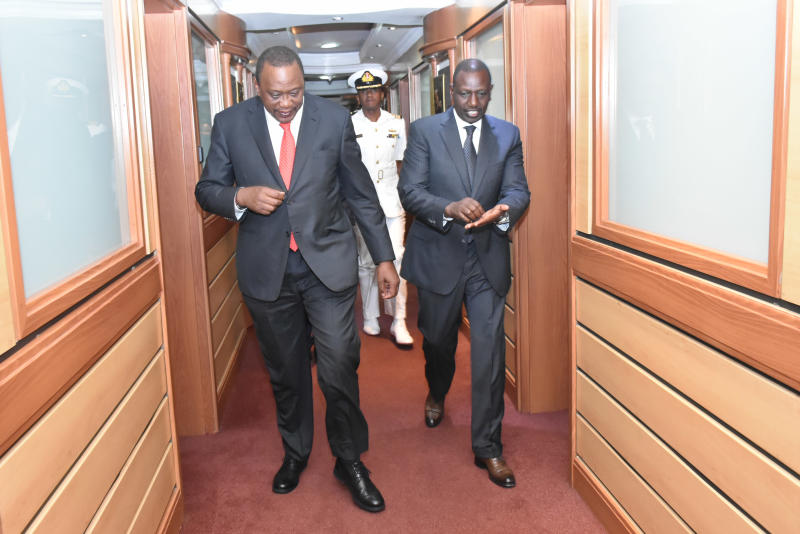
Social media was in a frenzy when President Uhuru Kenyatta strolled into the Harambee House Annex office of his deputy William Ruto on Tuesday afternoon. In newsroom parlance, this was a case of a man biting a dog. Ordinarily, it is expected that those two would meet anyway. Not least because of the camaraderie that the two seemed to enjoy in their first term.
There was even more symbolism when the two shook hands “for the cameras” echoing moments last year when Mr Kenyatta and former Prime Minister Raila shook hands on the steps of the building across the road.